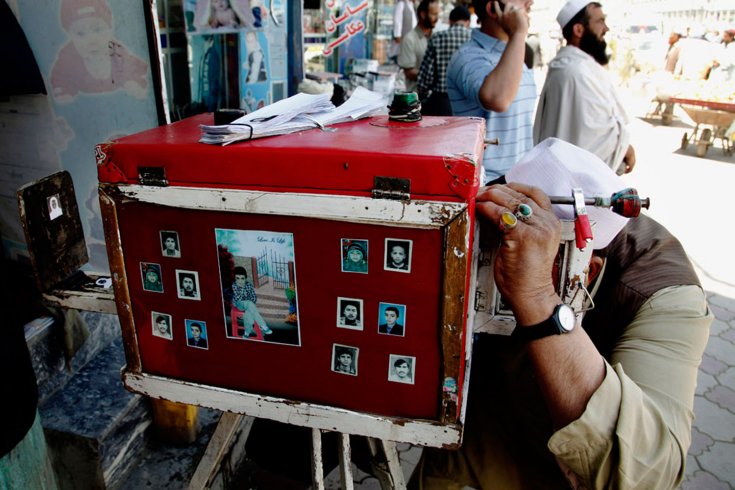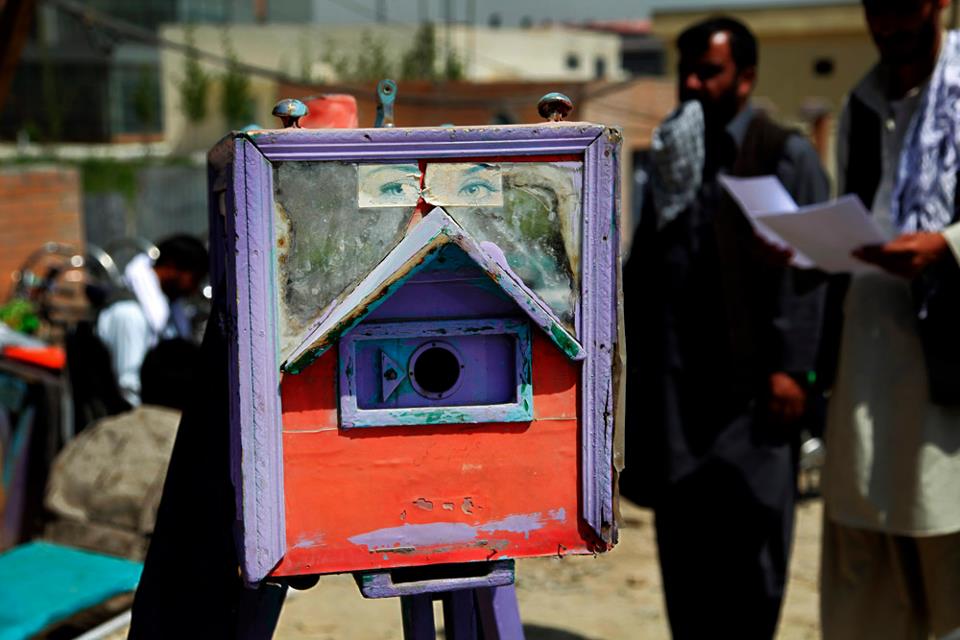The Afghan Box Camera Project provides a record of the kamra-e-faoree (instant camera) which as a living form of photography is on the brink of disappearing in Afghanistan.
The Afghan Box Camera is simply a box-shaped wooden camera, traditionally used by photographers working on the urban streets, who produce, by-and-large, instant identity portraits for their clients. This intriguing and insightful project began when Lukas Birk and Sean Foley saw their first box camera in the north of Afghanistan in 2005 while researching tourism in conflict zones. Lukas Birk then built several cameras to explore the technical possibilities of the tool and in 2011 they both made their way back again to Afghanistan to document the last remaining box camera photographers in Kabul and Mazar-e-Sharif.
As of June 2011 Afghanistan is one of the last places on earth where photographers continue to use the kamra-e-faoree for means of making a living. The hand-made wooden camera is both camera and darkroom all in one and generations of Afghans have had their portraits taken with it, usually for identity photographs. At one stage it was even outlawed when former rulers of Afghanistan, the Taliban, banned photography, forcing photographers to hide or destroy their tools.
If you would like to help. please visit afghanboxcamera.com
The Afghan Box Camera is simply a box-shaped wooden camera, traditionally used by photographers working on the urban streets, who produce, by-and-large, instant identity portraits for their clients. This intriguing and insightful project began when Lukas Birk and Sean Foley saw their first box camera in the north of Afghanistan in 2005 while researching tourism in conflict zones. Lukas Birk then built several cameras to explore the technical possibilities of the tool and in 2011 they both made their way back again to Afghanistan to document the last remaining box camera photographers in Kabul and Mazar-e-Sharif.
If you would like to help. please visit afghanboxcamera.com

say "جبن !" (cheese)
“Right now we can still talk about it as a living form of photography, maybe for another couple of years, before it will completely disappear,”~ Birk

Hand tinting the negative

































